
Blog
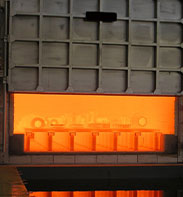
Heat treatment is an elaborate process and the process is simply explained
Updated: May 26, 2020
Many castings are used in the as-cast condition, but certain applications require higher mechanical properties than the as-cast material. Most of the gravity die casting and sand casting alloys can be heat treated. Pressure die casted components can seldom be heat treated. The purposes of heat treatment are as follows:
Read More >>
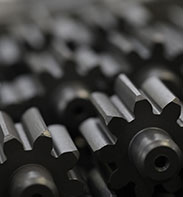
Hard Anodizing in Aluminium Casting
Updated: June 30, 2020
Aluminium has strong affinity to oxygen and formation of a compact oxide layer onto its surface exhibits high corrosion resistance in air and water solutions.
The anodizing is an electrolytic process, the aluminium casting immersed in the electrolyte (usually acids e.g. sulphuric, ortho phosphoric and oxalic), is the anode. The cathode is made of aluminium alloy, lead or stainless steel.
Read More >>

Radiographic Testing of Aluminium Casting
Updated: August 25, 2020
Radiographic Testing (RT) is a volumetric non-destructive evaluation (NDE) technique that helps to detect internal defects in castings, welds etc., which could not be detected by other NDE techniques like fluorescent penetrant, magnetic particle testing.
Read More >>
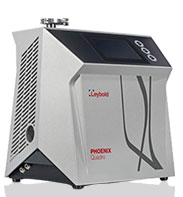
Helium Leak Testing
Updated: October 05, 2020
Using Helium to check leak in parts is highly effective compared to leak testing using normal atmospheric air. Helium Leak Testing is a type of non-destructive quality control testing of manufactured parts to ensure fluids do not leak into or out of the part. Depending on the material of the part and the criticality of the application of the part, leak rates to the extent of 1×10-12mbar.l.sec -1 need to be detected and measured.
Read More >>
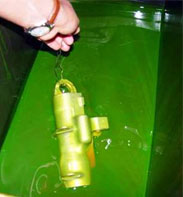
Fluorescent Penetrant Inspection (FPI)
Updated: October 05, 2020
Fluorescent Penetrant Inspection is a non-destructive testing method to detect surface discontinuities like cracks, laps, seams etc., on machined parts, castings, forgings etc.
Read More >>
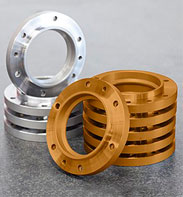
Chemical Conversion Coating of Aluminium alloys
Updated: Februry 26, 2020
Chemical Conversion Coating (CCC) or Chem film or Chromate Conversion Coating, is a process where a protective layer is created on the exposed surfaces of the parts, through a chemical reaction with the prescribed chemicals in the bath. Similar to anodizing, the protective layer not only imparts corrosion resistance to the surface of the part but also improves the adhesion of primer or paint on to the part’s surface.
Read More >>
